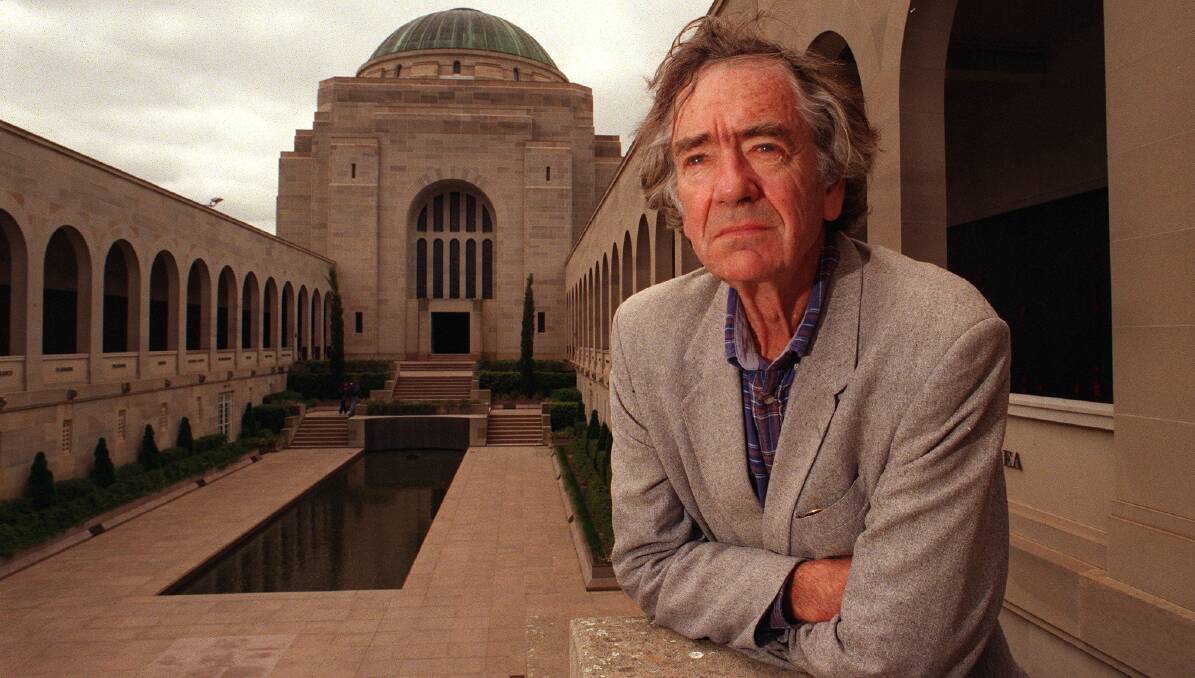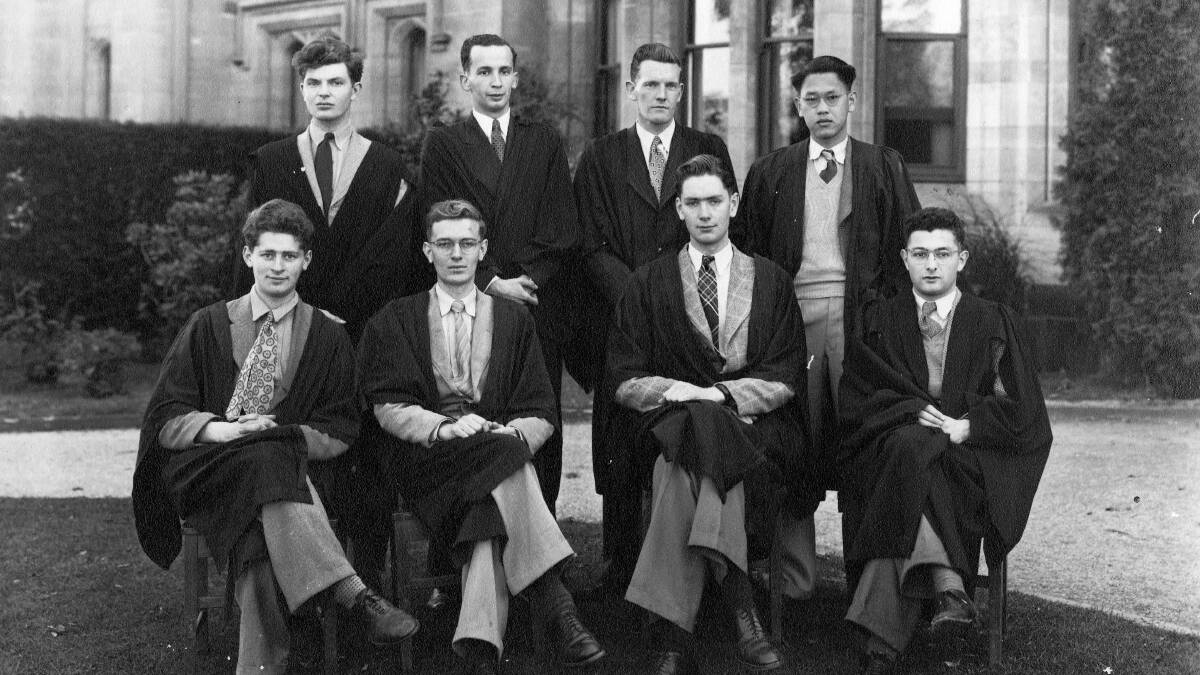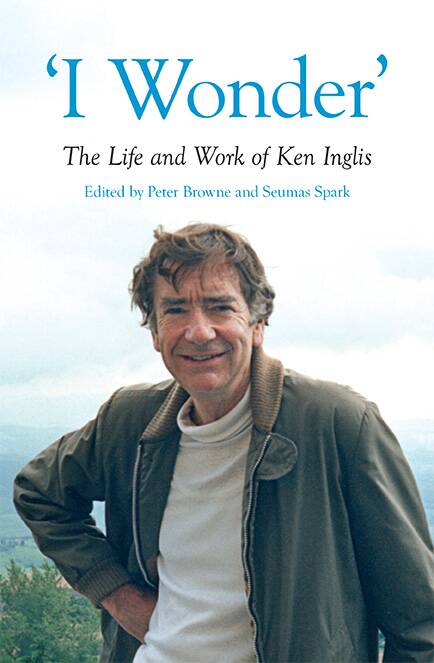I Wonder: the life and work of Ken Inglis, edited by Peter Browne and Seamus Spark, Monash University Publishing, $39.95

Adulation is rare in Australia. We all loved 'Weary' Dunlop and Reg Saunders from the wars. Gough Whitlam had a special place in the minds of many. Ilsa Konrads warmed our hearts, as did Rod Laver, Ritchie Benaud and, even Shane Warne.
Subscribe now for unlimited access.
or signup to continue reading
But we are, we're told, 'a nation of knockers'. We delight in 'cutting down the 'tall poppy'. I don't think that's true for a minute. I think we're as addicted to fame as the citizens of any other country but we don't do adulation.
And then along comes Kenneth Stanley Inglis, academic, I'm afraid to say, and - even more uselessly - not an economist or a cosmologist, not a medical scientist or a high-earning technologist, but an historian, lower than which, perhaps, it is impossible to imagine.
I Wonder shows just how much Ken Inglis dominated the teaching and researching of Australian history, and how graciously and generously, how collegially, he worked to develop and expand this vital field of study.
I Wonder is a book, properly, of adulation.
Few historians of Australia of my generation and a bit earlier would not want to acknowledge the role Ken played in their emergence.
I started a doctoral thesis at the ANU in early 1972. My supervisor told me I was to have lunch - sandwiches and orange juice - with a vice-chancellor, Professor Inglis, who could give me a few tips about writing about war.
I learnt more in that hour with Ken - which he generously offered me - than perhaps many of the hours I spent in libraries, archives and seminars in the years that followed.
So I welcomed this book in a way that maybe a reviewer should not. My job is to tell you the reader of the review pages of this paper and, possibly, as a book buyer, why you should shell-out for this book. And that's not obvious at first glance.

Ken Inglis was a very good historian. Possibly the best of his generation, too hard to go into that competition, but certainly the most daring. He started off conservatively, The Churches and the Working Classes in Victorian England, but he leaped into social military history to become the historian who would tell us more about Australia and Australians than any historian I know of.
He was the key instigator of Australians, an Historical Library the 12-volume gift of Australian historians and others, all done voluntarily. The aim was to help Australians celebrate/commemorate/wonder at the bi-centenary of the European arrival to the one of the oldest civilisations of which the world knows.
Even so, Ken kept on with his own work, culminating in the magisterial Sacred Places: War Memorials in the Australian Landscape, the book for which he will long be remembered.
This collection of essays shows the historical daring of Ken Inglis to its full extent. But it's much more than that. Why read it? Don't bother about the intellectual exercise that this collection shows in spades. Of course we can rejoice in that. But read this because of the life it displays.
A boy from Preston, in modest lower-middle class Melbourne, studied at Tyler Street State School, and then at Northcote High School. He 'finished' at Melbourne High, because Northcote didn't go to matriculation, and then went on to the University of Melbourne, receiving an education that made Ken the world-class scholar that he was.

An egalitarian, knock-about Australian education that gave him the courage to scorn the Oxford education that had 'completed' him.
Ken Inglis went to the highest levels of academic achievement and fame. Acknowledged as a world leader in the history of memory, commemoration and the notion of war - celebrated and honoured for books that will be read for many years. And yet - he would say - it was the Anzac Day ceremony at his primary school and his sense as an observer, not a participant there, that set him on his life's path and work.
Gavan Daws, a kid from the bush, turned up at Melbourne Uni in 1951, totally out of his depth, totally unsure of what he should be doing, pretty certain he should just run off home. Ken Inglis took him under his wing, told him how it all worked - Ken was then 22 years of age - and took him to a nice restaurant each week for food and talk.
I Wonder shows just how much Ken Inglis dominated the teaching and researching of Australian history, and how graciously and generously, how collegially, he worked to develop and expand this vital field of study.
Gavan Daws went on to have a stellar academic career, author of 16 books we're told, when he might have seen out his days as a rural labourer. In a book of pretty special writing, Gavan has the best line: "In the academic world, it is a real bonus when an excellent professor of humanities is also a good human being." I would have been happier if Gavan had said 'a good bloke', but you get his drift.
This collection celebrates and remembers a great Australian and a great Canberran - he was a professor at the ANU for more than 30 years. It is a work of love and piety and though, at times it is repetitious and occasionally fawning; please read it for the sense of what a great historian and academic can be.
If you have a child who is even remotely interested in history and the life of the mind make sure that she reads this book. It shows the limitless possibilities of life, even in this Australia, which can't have been so much worse than life in Australia in the 1930s
And the cover! Ken was a very tall, somewhat gangly man who could appear a little uncomfortable in his body. Usually stooped, in his later years anyway, and somewhat anxious in appearance, the cover photo reveals a man supremely confident, happy, relaxed and in ultimate control.
I Wonder celebrates one of the greatest Australians to have given his all to this country. It deserves a wide readership from those who might, currently, be given to despair.
Despair was not in this man's make-up, ever.
- Michael McKernan is a Canberra historian.

